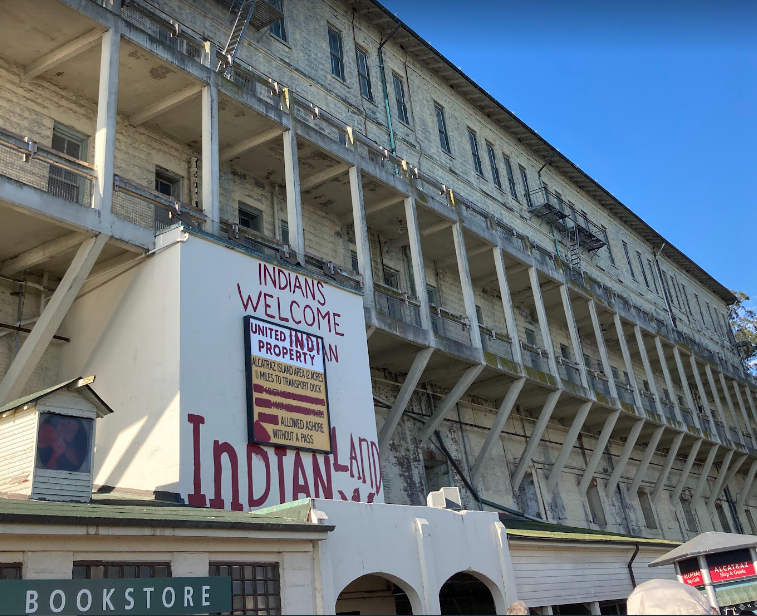Unthanksgiving: The Hidden Story
The other side of Thanksgiving.
Photo by Jackie Ozanich
Alcatraz visitor entrance, Alcatraz Island, San Francisco, CA. Photo taken by Jackie Ozanich.
Nov 10, 2021
Thanksgiving, celebrated in the U.S. and Canada, is a day to celebrate the harvest and blessings of the past year. Everyone has their own traditions and plans for this upcoming Thanksgiving, but the spotlight lands on how Native Americans celebrate this Thanksgiving–or protest it.
This Nov. 25th, people will gather with friends and family to enjoy turkey, bread stuffing, cranberry sauce, potatoes, and pumpkin pie. Americans model this day after the harvest by the Pilgrims of Plymouth and the Wampanoag people. 56.3 Million people traveled in the U.S. in 2019. Last year, an average of $46.90 was spent on a Thanksgiving meal. For Indigenous peoples of America, though, this is a day of protest.
Native Americans have gathered at noon on Cole’s Hill, Plymouth, MA, since 1970, for the National Day of Mourning on Thanksgiving. This is to mourn their ancestors and the genocides of their peoples. This tradition also includes a fast from the sundown the day before until afternoon later that day.
“Join us as we continue to create a true awareness of Native peoples and history. Help shatter the untrue image of the Pilgrims and the unjust system based on racism, settler colonialism, sexism, homophobia and the profit-driven destruction of the Earth that they and other European settlers introduced to these shores.” the United American Indians of New England (UAINE) states on their website, www.uaine.org
On the other side of the nation, Native Americans gather on Alcatraz Island in San Francisco, CA, for Unthanksgiving Day, also known as the Indigenous Peoples’ Sunrise Ceremony. This day is to promote the rights of and honor ingenious peoples of the Americas. The first Unthanksgiving Day was held on November 25, 1975. This ceremony includes rituals and honorific dances, and speeches, all to recognize and pay tributes to the oppression Native Americans face due to colonization.
Everyone deserves a day to spend time with their family and be thankful for everything they have, but it is important to stay mindful and recognize the oppression Native Americans have faced, and to respect their culture.

